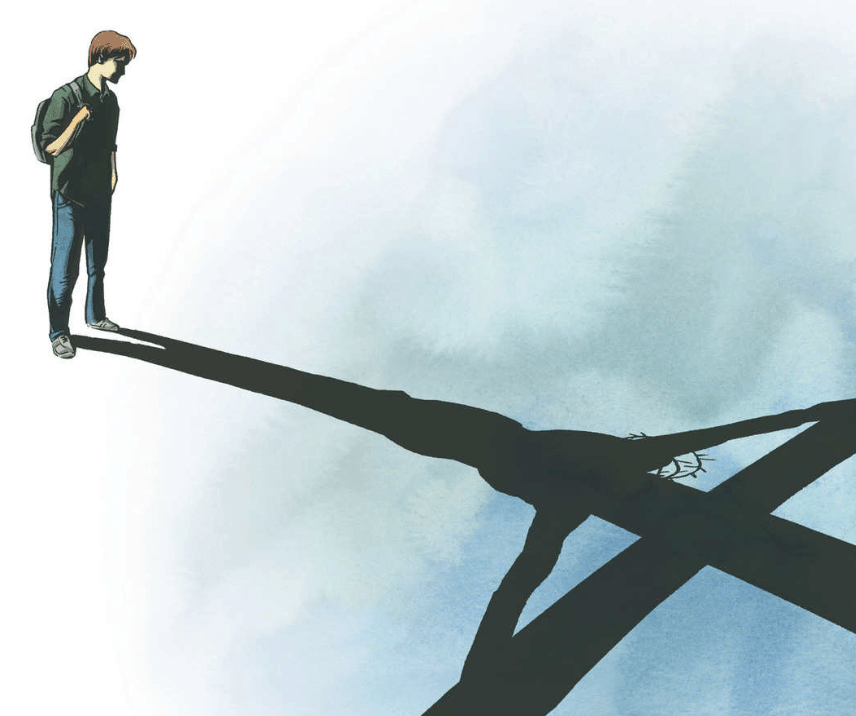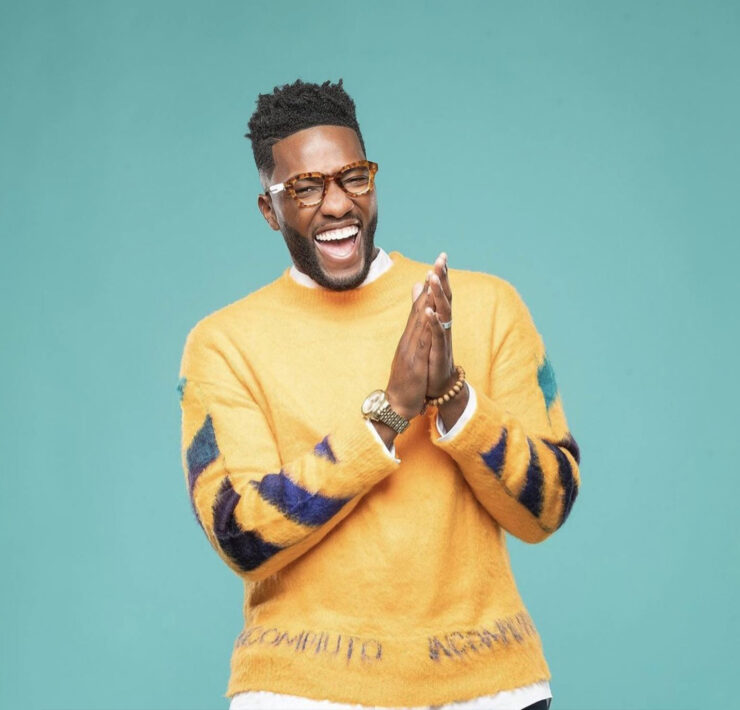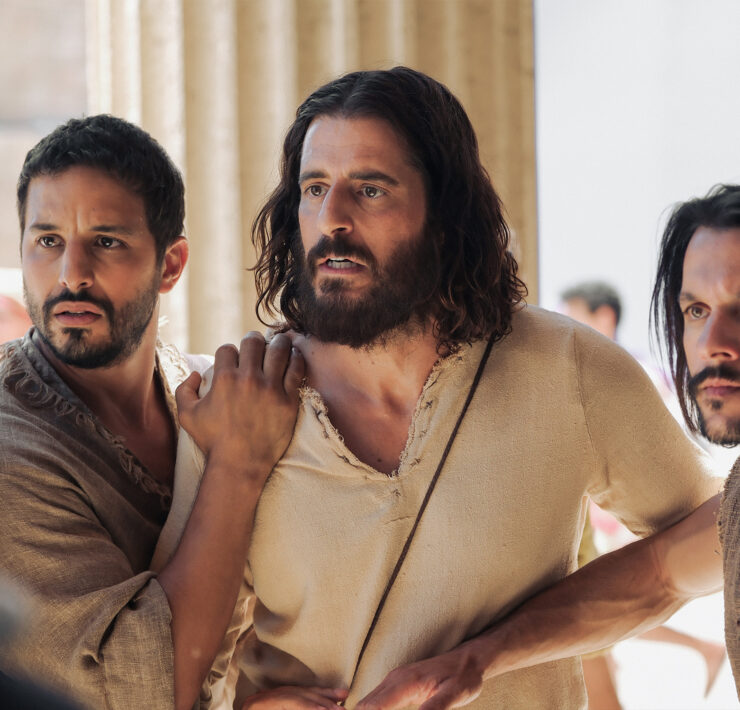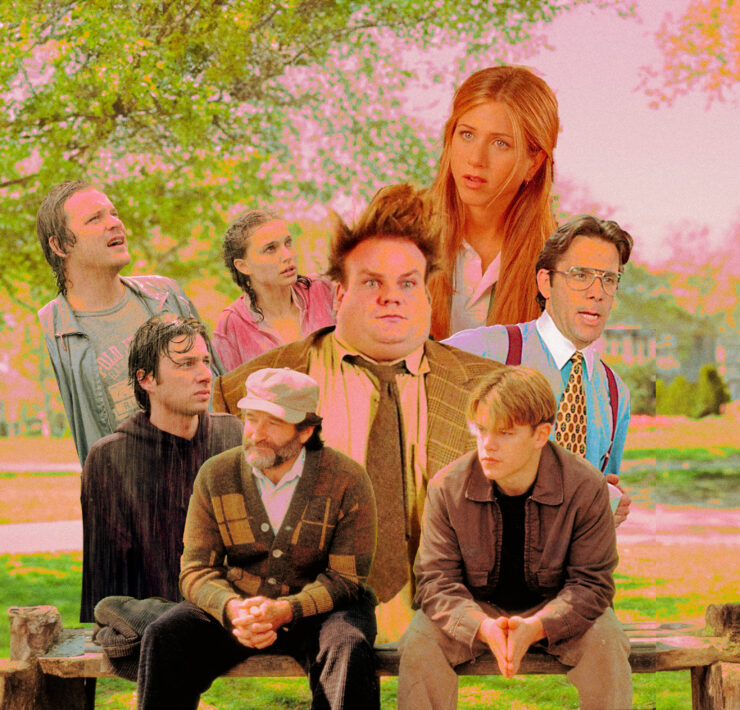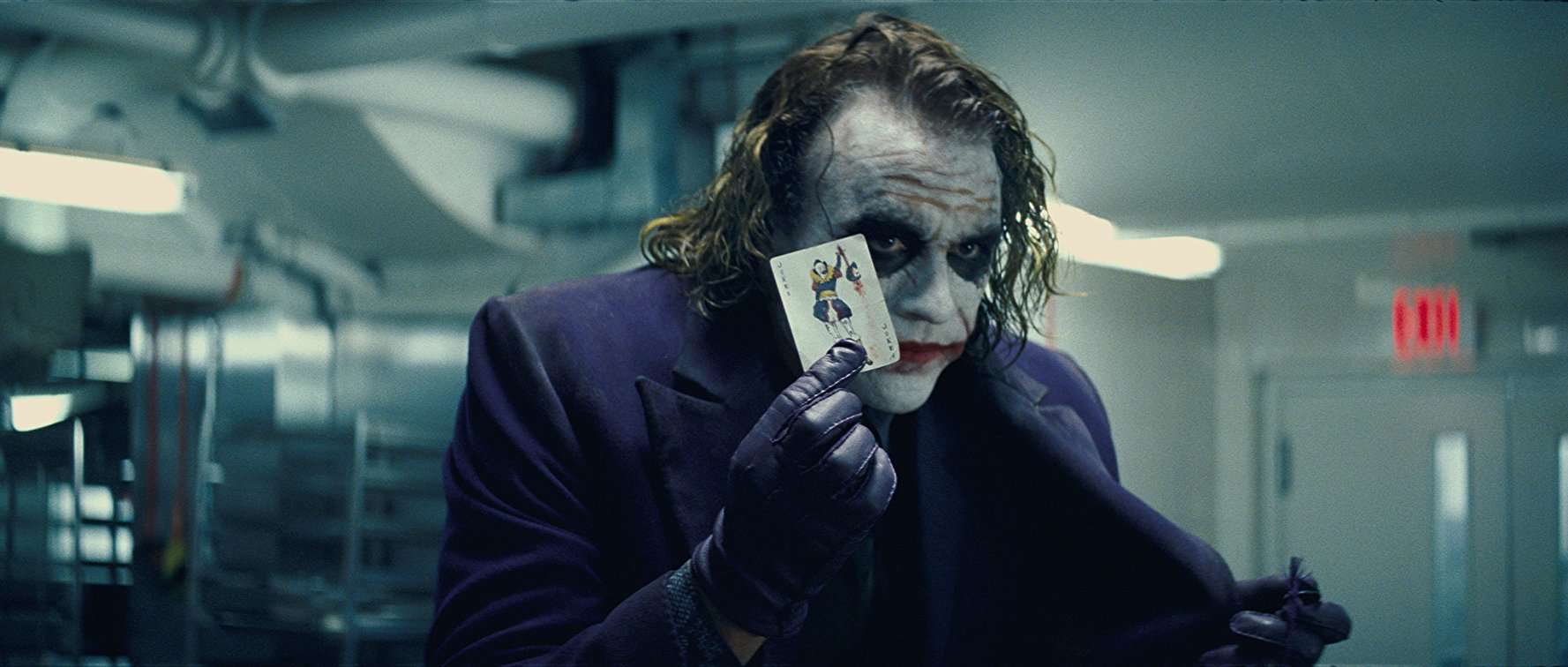
“It’s not about money, it’s about sending a message. Everything burns.”
The first glimpse of The Dark Knight’s cultural impact came during the teaser trailer. As Michael Caine’s now-iconic “watch the world burn” speech fades out, the Joker’s voice fades in, followed by the signature deranged laugh. The cackle is pure anarchy, the final blow to an already disintegrating Batman logo, and fans were left chilled, excited and unnerved. Batman Begins was good, but this teaser promised something more, something darker. We had no idea.
Real-life tragedy added to the film’s dark edge. Heath Ledger died from a drug overdose before the beginning of the film’s promotional campaign, and rumors of the Joker role driving him insane turned the film’s lead-up into something macabre, sad and morally problematic. The Dark Knight became an omnipresent cultural moment, but the movie’s long-reaching impact goes beyond Ledger’s iconic, Oscar-worthy villain. The Dark Knight is one of the defining films of the 21st century. It captures a persistent social instability that’s only more relevant now, 10 years later, than ever.
In the decade since its release, TDK has been “YouTubed” to death, with its iconic moments—the interrogation scene, the truck flip, the pencil trick—stripped of context. This means we view the film as a collection of greatest hits and fun moments, but forget the psychic terror it strived for. Composer Hans Zimmer’s jittery violins birth a simmering tension with the first overhead shot of Gotham City, and director Christopher Nolan calls his shot early. He’s here to both entertain and disturb us.
Nolan lets the audience breathe when we meet the characters after the virtuoso opening bank heist, but when the Joker’s reign of terror begins in full, Zimmer’s screeching string arrangement returns, and we see Batman’s silhouette on a skyscraper, looking in futility for a villain some describe as a funhouse mirror version of the Bat himself. The Joker is more than a man. He’s a symbol of terror and an agent of chaos. He is a manifestation of humanity’s worst fear: that behind the facades we create, we can’t keep from falling apart.
Nolan has always been fascinated by the lies we tell that give our lives meaning. Memento, Inception and The Prestige all feature male protagonists who have created fictions to hide from the guilt of their pasts (It’s more than a bit problematic that this always involves the death of a barely shown wife.). In two of these films the guilt literally manifests itself, as Mal in Inception and as anterograde amnesia in Memento. Joker, then, is the sins of a city writ large.
When TDK opens, Gotham City is moving toward peace. Harvey Dent is an incorruptible white knight, Detective Gordon is working with dirty cops to clean up the city (you work with the world you have to make the world you want). Batman has terrorized the mob into hiding. All, it seems, is well. Except it’s not. It never is. The Joker takes control, and his two-boat bomb experiment at the end of the film becomes the capstone of his entire philosophy: When push comes to shove, humans will turn on each other. It’s telling that this is one of the least convincing moments in the film: Sure, nobody pushes the button, but that moment feels far less authentic than the rest of the film, during the moments Gotham is ripping itself apart.
Late in the film, the Joker tells Dent that people will go along with anything, as long as its “part of the plan.” A soldier can die from an IED or a gangbanger can be shot, and that’s part of the plan. TDK was made in the aftermath of the Iraq War debacle, when “Mission Accomplished” banners flew while under-resourced soldiers were dying, and war-profiteering mercenaries slaughtered Iraqi citizens. But it was all part of the plan. Today we have a president taking the word of a genocidal dictator over the American intelligence community, missing migrant children ripped from their parents and a church riddled with sexual abuse scandals. But since the economy is doing well, and conservatives are getting another Supreme Court Justice, it’s all part of the plan.
In another scene, Detective Gordon asks of the Joker: “What is he hiding under that makeup?” The answer is nothing. Joker is the only character in the movie not hiding, and he’s forcing Gotham to reveal themselves in kind. There’s a brief moment in the film when Joker has to blend into a crowd of police officers, and we see his face without the white paint. It’s easy to think it’s his “real face,” but what if it’s his disguise? Joker’s cracked, creepy makeup is who he is, chaos incarnate, the anti-word made flesh.
The Joker has a demonic ability to spot psychological weaknesses and exploit them. He is practically omniscient, planning out his attacks with an impossible amount of foresight (notice how he merges the school bus from the bank heist right into a line of other buses). He is such a seductive, malignant power that even the noble Batman fails to beat him. The last we see of the Joker, he is dangling from a cable, cackling at Batman’s unwillingness to kill him. It’s almost as though Nolan, too, is beaten by his own villain. The director tried to make a pro-Batman movie, but couldn’t find an authentic way to overcome the Joker’s twisted vision for humanity.
The Dark Knight isn’t a perfect film by any means. The visual geography of its action scenes is incoherent, the time it spends in Hong Kong is pointless and after years of denial I’m finally willing to admit that Christian Bale’s Batman voice is ridiculous. Other superhero movies execute their vision better from start to finish, but TDK is the purest distillation of a worldview that says humanity is so fragile, it can be torn apart by the manifestation of its weaknesses. We’ll discuss this film in 50 years, when 90 percent of the MCU has been forgotten.
Most superhero films tell us there’s hope: A hero will come and save us from the bad guy. The Dark Knight responds with the idea that no hero can save us from the bad guy because the villain lives in us.
Editor’s note: A previous version of this article incorrectly stated that Ledger died by suicide.









